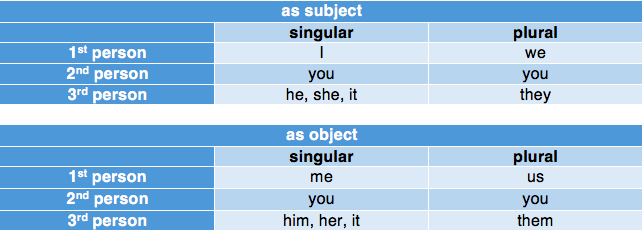An Adverb
A word that qualifies the meaning of a verb, or an adjective or another adverb is called an
Adverb.
Read the following sentences
1. Saurabh runs quickly
2. Reena is extremely beautiful.
3. This is a very sweet apple.
4. He looked up
5. The camel walked backward.
6. The horse galloped away.
• पहले वाक्य में quickly बताता है कि सौरभ किस प्रकार (in what manner) दौड़ता है। अतः quickly शब्द क्रिया 'run' की विशेषता बता रहा है।
दूसरे वाक्य में extremely यह प्रदर्शित करता है कि रीमा कितनी (in what degree) सुंदर है। अतः इस वाक्य में 'extremely' शब्द beautiful (सुंदरता) की विशेषता बता रहा है।
• इसी प्रकार तीसरे वाक्य में 'very' शब्द विशेषण Sweet (मीठेपन) की मात्रा (in what degree) प्रदर्शित कर रहा है। अतः वह 'Sweet' (adjective) की विशेषता बता रहा है।
अतः उक्त वाक्यों में 'quickly', 'extremely' एवं
very शब्द adverb हैं ।
• इसी प्रकार अन्य वाक्यों में 'away', up, backward, how, not आदि शब्द भी adverb हैं। निम्न अन्य वाक्यों का अध्ययन करें
1. He saw me yesterday.
2. The kite flew exactly over my head. 3. There is air everywhere.
4. I therefore left school.
उक्त वाक्यों में 'yesterday', 'exactly', 'everywhere' एवं 'therefore' शब्दों का प्रयोग क्रमश: Saw, over, is, left एवं right की विशेषता बताने हेतु हुआ है। अतः ये सभी Adverb हैं।
Kinds of Adverbs :
1 Adverbs of Time
(Which show 'when'):
समय (Time-Where) को अभिव्यक्त (express) करने वाले adverb को 'Adverb of time' कहते हैं। उदाहरण: Yesterday, today, tomorrow, Last year, Last night, just now, next day, the day before_yesterday, at present, recently, before, since etc.
निम्न वाक्यों का अध्ययन करें
1. I have heard this before.
2. He comes here daily.
3. Ravi will soon return.
4. Susheel hurt his knee yesterday.
उपर्युक्त वाक्यों में 'before', 'daily', 'soon' एवं 'yesterday' शब्दों का प्रयोग adverb के रूप में क्रमश: heard, comes, return, hurt एवं seen क्रियाओं की विशेषता (कब-when) बताने के लिए हुआ है, अतः ये सभी समयवाचक क्रिया विशेषण हैं।
2 Adverbs of Place
(Which show 'where'): जो adverb स्थान (place) को अभिव्यक्त करें, उन्हें'adverb of place' कहते है। जैसे: here, there, below, over, nowhere, inside, away, out, up,
far, near etc. .
निम्न वाक्यों का अध्ययन करें
1. Stay here till I return.
2. The principal is out today. 3. The little puppy followed Hari
everywhere.
4. He looked up.
5. Come in please.
6. My brother lived there.
उक्त वाक्यों में here, out, everywhere, up, in एवं there का प्रयोग क्रमश: stay, followed, looked, come एवं lived क्रियाओं की विशेषता (कहाँ-at which place) बताने के लिए हुआ है, अतः ये सभी स्थानवाचक क्रिया विशेषण हैं।
3 • Adverbs of Frequency /Number
(Which show 'how often'): ऐसे adverb जो किसी कार्य के होने की संख्या या आवृत्ति को बताते हैं 'adverb of number' कहलाते हैं।
जैसे: Again, frequently, once, twice, always, seldom, never, often, rarely, firstly, scarcely,
hardly etc.
निम्न वाक्यों का अध्ययन करें
1. I have not seen Gopal once.
2. The postman called again.
3. Raghu seldom comes to the school.
4. Sheela often goes to water park.
उपर्युक्त वाक्यों में once again seldom एवं often शब्दों का प्रयोग क्रमश: क्रिया seen, called, comes, goes एवं try to do की विशेषता (how many times or how often) बताने के लिए हुआ है अतः ये सभी 'Adverbs of number' हैं।
4 Adverbs of Manner
(विधिवाचक क्रिया विशेषण- Which show how or in what manner): ऐसे adverb जो किसी कार्य (action) को सम्पन्न होने की विधि/तरीके (method/manner) को अभिव्यक्त करते हैं, उन्हें 'adverb of manner' कहते हैं। सामान्यत: adverb of manner शब्दों केअंत में 'ly' जुड़ा रहता है। इस प्रकार के लगभग सभी क्रिया विशेषण Adjectives से बनते हैं।
जैसे: Slowly, fastly, wisely, clearly, bravely, soundly, beautifully, fluently, badly carelessely, carefully, sadly, quickly, well certainly, seriously, faithfully etc. निम्न वाक्यों
का अध्ययन करे
1. All the boys of my class read clearly
2. The Indian soldiers fought bravely in Indo-Pak war
3. Ram is doing his work seriously.
4. My daughter is sleeping soundly
5. You are doing this job very slowly
6. Don't work carelessel
उपर्युक्त वाक्यों में Clearly, bravely, seriously, soundly, slowly and carelessly शब्दों का प्रयोग क्रमशः read, fought, doing, sleeping, doing एवं work क्रियाओं के होने का तरीका (manner) बताने हेतु किया गया है, अतः ये सभी' 'adverb of manner' हैं ।







